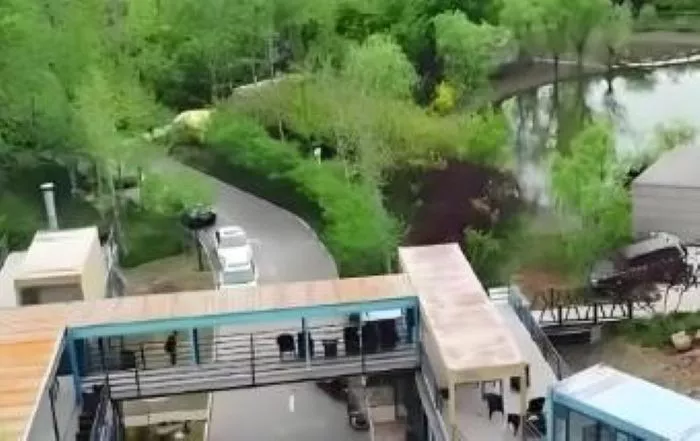When Xu Chang resident Li Lin posted casual photos from Lekka Life Aesthetics Farm, her social media exploded with inquiries. The working mother had stumbled upon central Henan’s latest tourism phenomenon – curated short-break experiences blending agriculture, crafts and nostalgia. “We’re seeing urban families trade lengthy vacations for frequent weekend escapes,” explains farm operator Wang Dongfang, whose 600-acre property now draws 3,000 weekly visitors through its interactive paddy fields, gourd museums and artisan workshops.
The farm exemplifies a nationwide “micro-vacation” boom accelerated by post-pandemic travel preferences. In nearby Liuwangzhai Village, converted farmhouses now host urbanites seeking riverside tranquility. “Our 18 boutique homestays booked out every weekend since Spring Festival,” says village Party secretary Si Jiaoni. The community’s ingenious repurposing of abandoned buildings into “River Valley Camp” lodgings has generated 200,000 yuan in additional income this year, with former homemaker Liu Xiaomei earning 10,000 yuan annually from her revitalized ancestral home.
Jian’an District’s strategic embrace of this trend reveals its economic potential. During May Day holidays, the area’s dual tourism routes – combining revolutionary history sites with agricultural experiences – attracted 400,000 visitors, doubling 2024’s revenue to 44.12 million yuan. The formula succeeds by packaging bite-sized cultural encounters: morning mushroom-foraging at Century Xiang Fungus Park, afternoon calligraphy workshops at Han-Wei Ancient City ruins, and stargazing at converted barn lodgings.
Industry experts identify three growth drivers: urban parents seeking educational leisure (65% of farm visitors), millennials craving Instagrammable rural aesthetics, and retirees pursuing slow living. The district now strategically links disparate sites into themed circuits, like its Eastern Route connecting three Kingdoms-era monuments with modern wellness retreats. “We’re moving from scattered attractions to integrated destination ecosystems,” says Liu Yuqin, director of Jian’an’s Culture and Tourism Bureau.
As China’s domestic tourism evolves, these hyperlocal experiences demonstrate how countryside rejuvenation and urban escapism can create sustainable value. With night markets featuring wheat-straw art and predawn birdwatching tours gaining popularity, Jian’an’s model offers blueprints for rural communities nationwide to transform idle assets into cultural capital – one weekend getaway at a time.
Related Topic:
- Morocco: A Tapestry of North African Wonders
- Australian Tourism Industry Rides China’s Visa-Free Wave
- 2025 Chinese Opera Festival Debuts in Vienna with Stunning Wu Opera Performance

